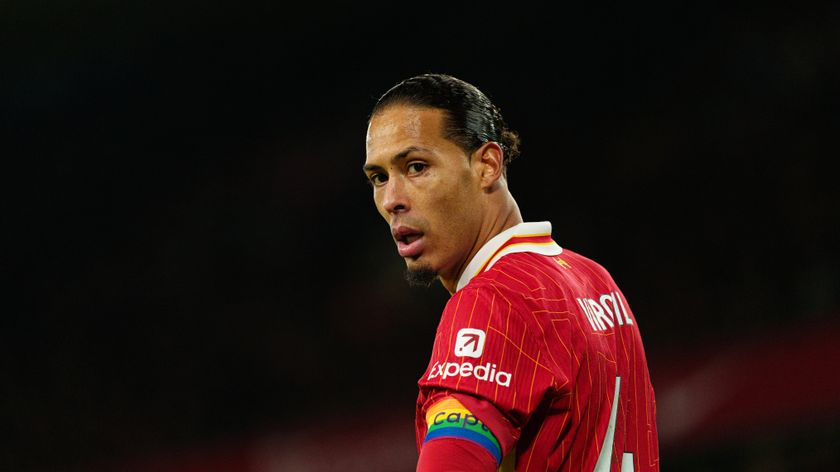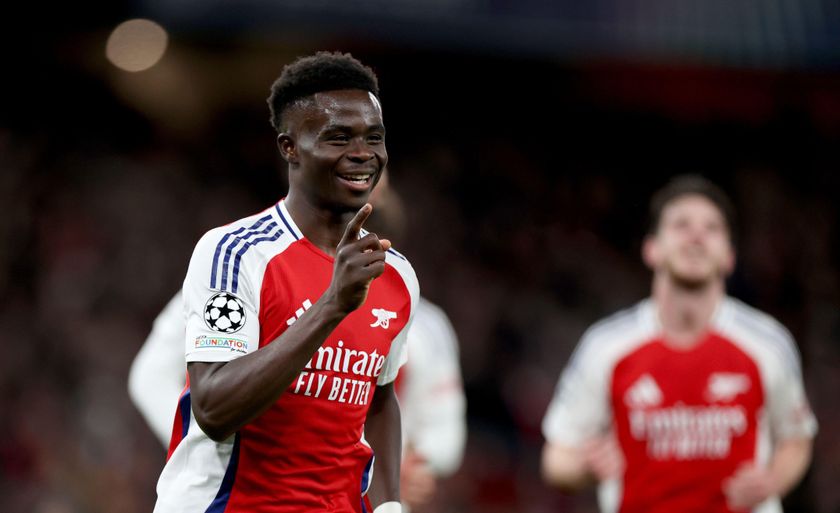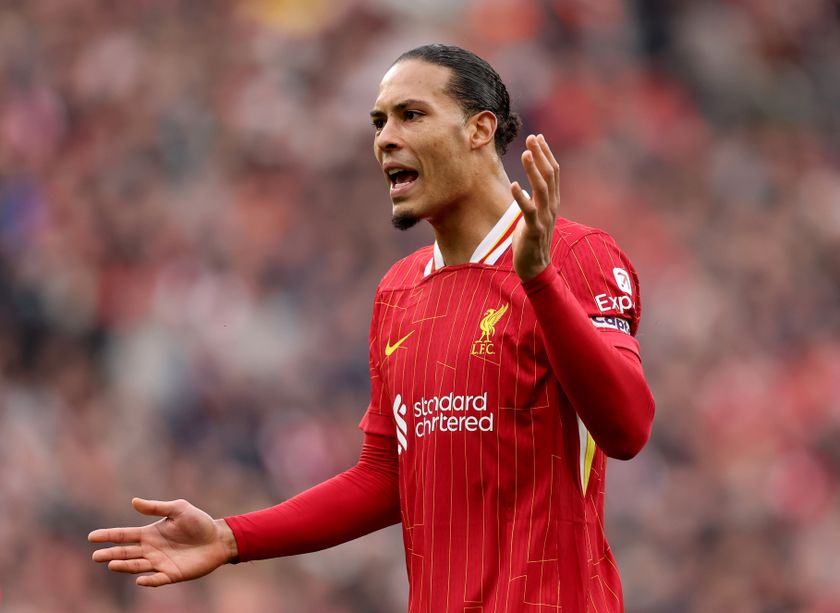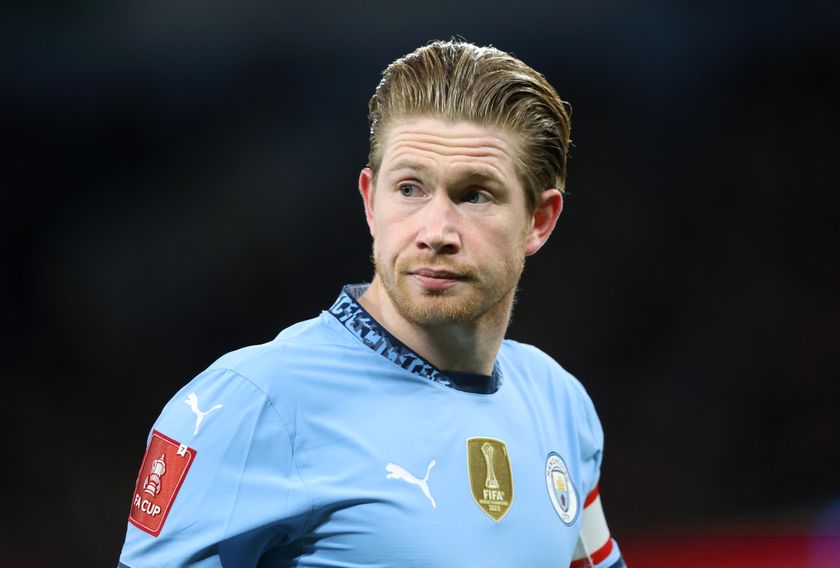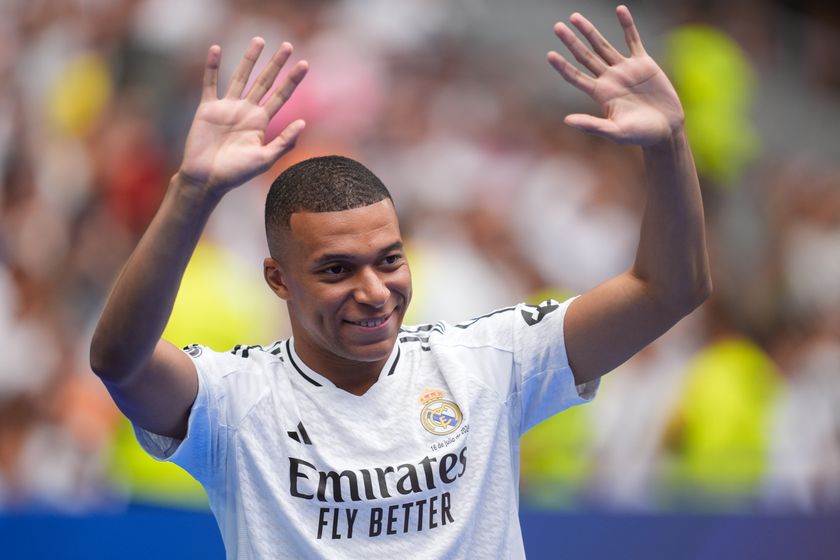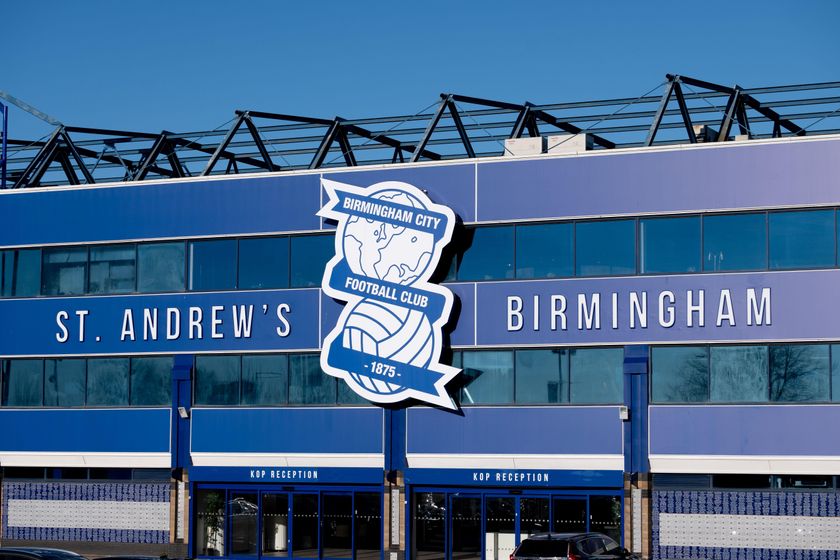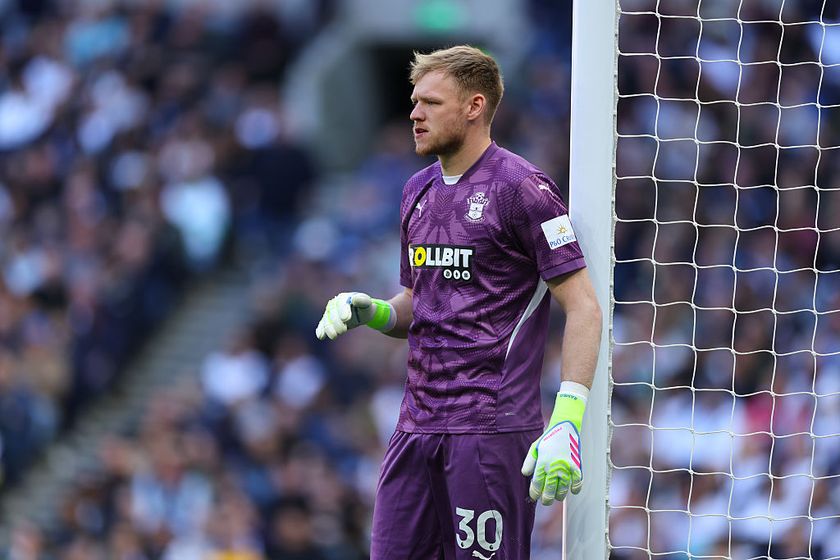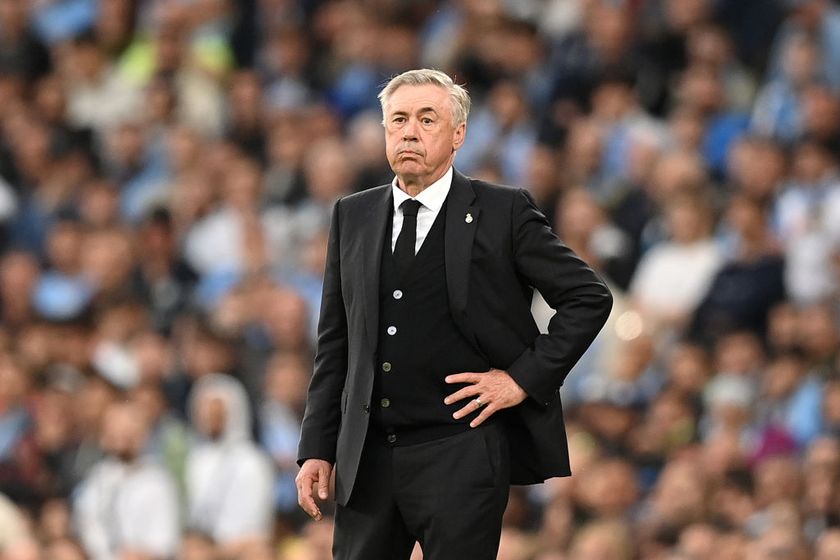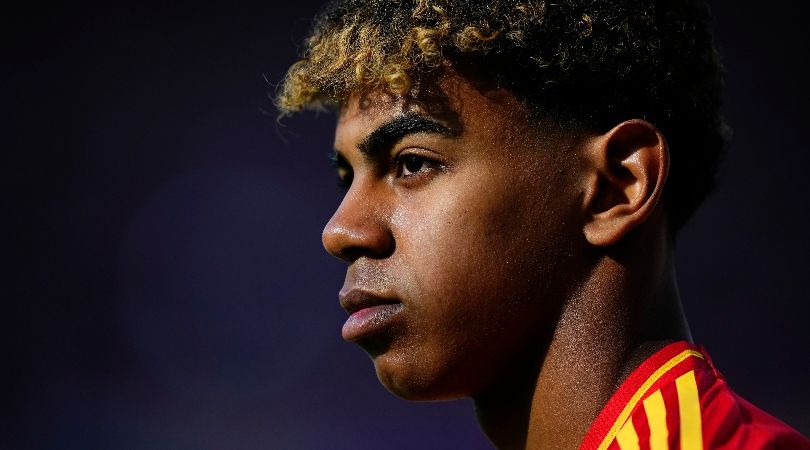What do scouts look for in strikers?
FFT speaks to the man who scouted Jamie Vardy and Didier Drogba to find out exactly what he looks for when he goes in search of a striker
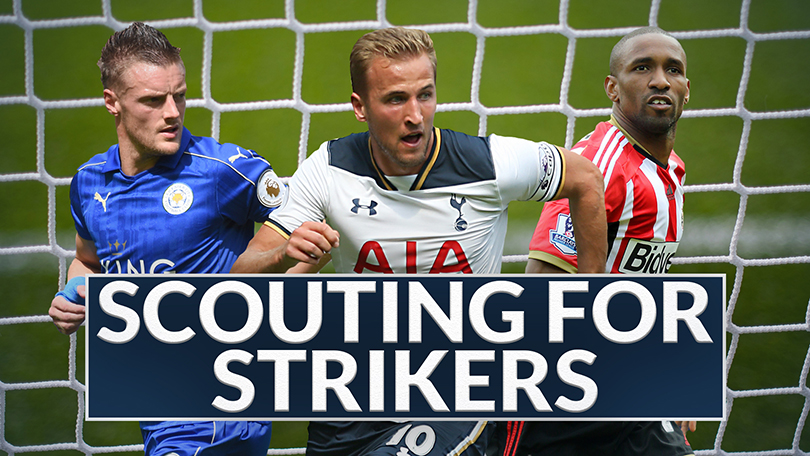
Steve Walsh is one of football’s most respected talent spotters. He was a European scout for Chelsea and played a role in the signings of Gianfranco Zola and Didier Drogba, before unearthing Jamie Vardy and Riyad Mahrez as Leicester City's head of recruitment.
Scouting for strikers is a fine art. Goalscorers are a rare breed and the game’s most sought after talents. FFT spoke to Walsh – who is now director of football at Everton – to find out exactly what he looks for when hunting for a hitman…
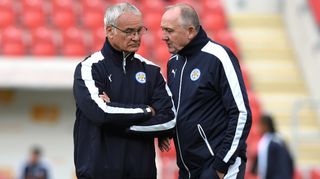
Steve, top strikers are few and far between just how difficult is it to find one?
In all the time I’ve been in football, I’ve never not been looking for a striker, so I think that says it all. They are very few and far between and certainly at Premier League level, they are very scarce. They also come with big price tags. When you are trying to scout strikers, if you just list the top five strikers with the best goals to game ratios, that’s not real scouting. You need to look at the potential for the striker to be able to get to those figures. You’ve got to believe in somebody who, given the right service, can score goals. That’s such an important skill when looking at strikers.
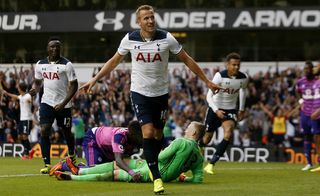
What exactly do you look for when you're scouting a striker?
It varies, because some strikers have a big physical presence and will hold the ball up or flick it on. If you are a target man, you might not score as many goals as a six-yard box poacher, so you're looking for different skill sets. You might be watching a second striker, a player who plays off a big man and sniffs out an opportunity based on the fact the big man is taking that pressure away from him. You're looking for a striker who can read the game and is in the right place at the right time.
Get FourFourTwo Newsletter
The best features, fun and footballing quizzes, straight to your inbox every week.
Scoring goals is the most difficult thing to do on a football pitch. Strikers come in all shapes and sizes; they’ve got a variety of different attributes. Obviously pace is a great advantage. Another good attribute is having a calm head and a variety of finishes. Do you wait for the goalkeeper to go down early? Do you wait for him to stand up, or do you try and lob it over him? Do you go round him? The best strikers are the ones that make the right decisions.
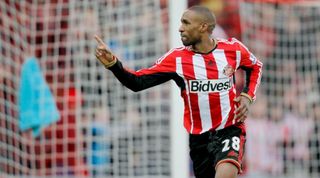
Are strikers the most important player in the team?
All the players in the team are important, it’s a team game at the end of the day and you need your goalkeeper to be as good at his job as your goalscorer. It’s quite surprising that a lot of goalscorers who have got a lot of goals in the game haven’t actually won much. If you look at Jermain Defoe - he's a fantastic striker - but has he won a top honour? From that point of view, if you are going to win something, you need someone who is going to score consistently, but you also need other players contributing in that area from other parts of the field.”
You scouted Jamie Vardy when you were at Leicester City - when did you first spot him?
At the time, Jamie Vardy was a non-league player playing for Fleetwood Town. I knew of him when he was playing for Stockbridge Steels years before that and then he moved to Halifax Town. We had tracked him during that time and eventually he stepped up through the divisions. He got himself in the Conference with Fleetwood Town, but he kept improving and scoring goals at each level. It got to a point where we had to make a call on him and in the end he became the first million pound player to move from a non-league club to a professional club.
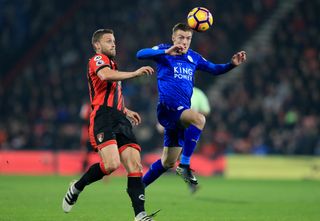
What made him stand out?
I think everyone recognised his pace but also his passion and desire to get to the ball before the centre-back. So, when you play balls down the side, to ordinary players, they would be balls that the centre-backs would mop up. When you play that ball to Jamie, he knew straight away he was going to fight for the ball. Sometimes it would go out of play or the defender wouldn't make it and Jamie would be in a one-on-one situation. On other occasions, he would play other people in but he was also able to score himself.
How was he different to other players at that level?
I think his mentality is good because he knows what his strengths are and he plays to his strengths. He can come short and be a link-up player but his real strength is in getting behind and using that pace and power to get the ball.
Would you say pace, power and mental strength are the best attributes to have when you make the step up to the Premier League?
As a centre-back, it doesn’t matter how good you are, the thing that worries you the most is pace. If it is controlled pace with a productive element to it, which Jamie has, then it frightens people.
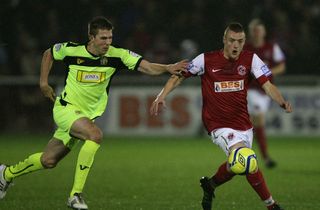
Why do players fail to make it, despite being very talented?
You find a lot of players who are technically gifted - they have good skills, they can control the ball well and their range of passing is good. But when you step up to Premier League level, you’ve got to be able to do things a lot quicker. We’ve all played five-a-side and thought ‘this kid has got all the skills - why didn’t he make it? Why didn’t he go on to become a professional footballer?’ It’s about being able to do things at the right time, so the timing of the pass or movement is incredibly important. There’s also a lot more pressure on them to perform.
What tips would you give to players looking to replicate Jamie Vardy’s success?
Stick at it. Some players don’t deal with disappointment well. If they’re left out of the team or not playing well, they start to sulk. You need to expect to be disappointed - Jamie was many times but it is how you react to that disappointment which is important. You should go back into training, put a smile on your face and work hard that next training session. If you’re a young player trying to come through and you’ve been fortunate enough to train with the first team, that’s your cup final. That’s your opportunity to show the first team manager why you should be training with the first team all the time. That’s almost as good as playing in the reserves or the development squad - get out there and show the manager what you can do.
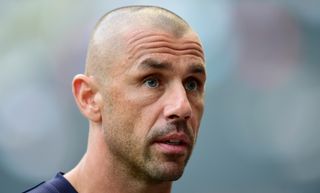
How much did Vardy benefit from working with Kevin Phillips?
I learnt quite a lot when Kevin Phillips came to work with us at Leicester City. He was a prolific striker and has wonderful technique. He worked with our strikers and did a very good job. We probably made Jamie a better striker than he was previously because he was taking advice off someone who has been there and done it. Kevin really persevered with him. I think Kevin got frustrated at times with Jamie because he would try and lash everything and Kevin’s advice was: ‘I passed a lot of my goals into the goal, I actually passed it in. I didn’t have to smash it – there are times when you have to but I scored a lot of my goals by just being clever and timing that shot or pass into the goal.’ I really think Jamie benefited from working with Kevin.
Are there any training habits you’ve noticed among top strikers?
I think the repetition of replicating that same situation time and time again so that it becomes second nature is something all top strikers do. Getting across the centre-back to get in first is a key skill that people in training will work on. Repetition is key – putting yourself in that position on a regular basis whether it be a headed goal or one where it’s slotted in from close range or a shot from distance. Replicate the way that goals are scored, continue to do that and practice.

